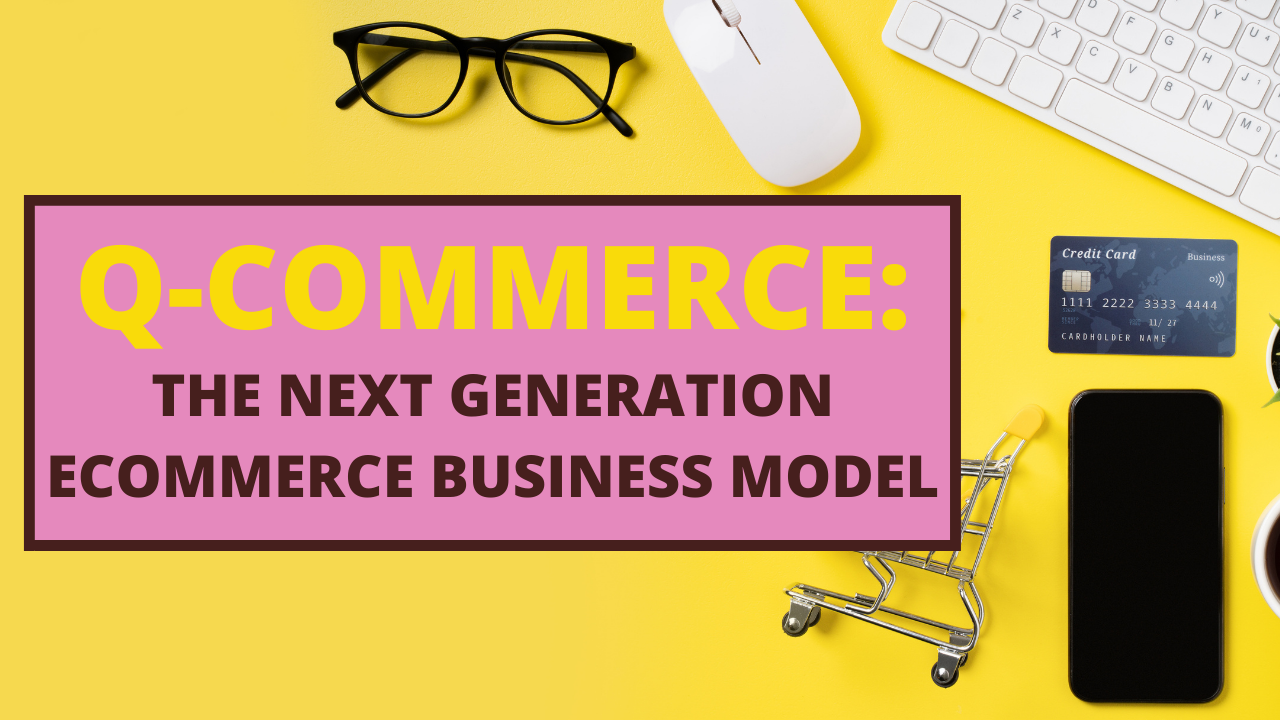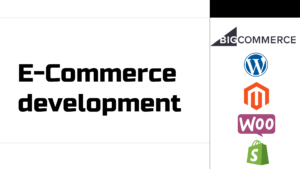Shoppers want to buy and have it delivered faster without paying heavily. Q-commerce meets precisely this type of standard requirements made by the customers using social media and other digital channels.
Covid has aided consumers’ digital adoption in the retail business over the last two years. Thus, enterprises are increasingly attempting to embrace speedy delivery of commodities to their clients as a result of the shift in consumer behavior in the post covid world with their free online store services.
This type of eCommerce business is gaining traction in India’s burgeoning eCommerce market.
Here in this blog, we have tried giving you an overview of this modern Q-commerce meaning. Along with this, we will tell you its growing impact on the Indian eCommerce market and Economy.
What Does Q-Commerce Mean?
In other words, Quick or Q-commerce is define as a buy-to-delivery process that takes less than an hour.
This rapid eCommerce business model combines the advantages of the eCommerce market (doing business over the internet) to develop a new business model, and it meets the need for swift product delivery.
What’s Making Q-Commerce Attractive?
- It also boasts of a significantly higher NPS or net promoter score.
- Provides a quick shopping experience to the customers
- Swift loading time for loading online shopping carts
- Requires few steps to make a purchase which ultimately helps the seller with additional transactions
To serve orders in a short period of time, companies typically open up dark storefronts or partner with local grocery stores.
How Is Indian Online Grocery Market Doing Currently, And What Scope Of Expansion Does It Hold?
From US$ 3.95 billion in FY21 to US$ 26.93 billion in 2027, the Indian online grocery market is predicted to develop at a CAGR of 33%. Thanks to the increased adoption of free online stores in online services such as e-commerce and edtech, India’s consumer digital economy is expected to grow from US$ 537.5 billion in 2020 to US$ 1 trillion by 2030.
Q-Commerce Influence In the Indian eCommerce Market
Blinkit, Swiggy, Zomato, and Zepto are all successful instances of Indian q commerce. The total addressable market for fast commerce in India is expected to be over USD 45 billion, with large metros and tier 1 cities driving demand.
In a nutshell, if the entire procedure – purchase to delivery takes less than an hour, that can referre as Quick or Q-commerce.
Future Of Q-Commerce
Q-commerce is a relatively new business strategy that is fast gaining traction. Since their inception, many companies have encountered numerous issues, but Indian Q-commerce has emerged as a long-term answer for them.
Their success can be ascribed to the benefits that such business models provide, as well as the possibility for future expansion. Furthermore, the Covid pandemic has resulted in a consistent shift in customer shopping habits. They are now more oriented toward online, on-demand services, with a preference for convenience above loyalty.
Indian Q-commerce has opened up new frontiers in the market for companies to explore.
Such distribution systems can improve over time for increased efficiency and cost-effectiveness while also expanding the reach of these free online stores to more clients throughout the world. Still, this model’s potential also makes it one of the most profitable company models on the market today.
Let’s Wrap Up
Quick commerce is a relatively new notion in the eCommerce market, and it represents a largely untapped possibility. It is likely to grow in popularity as individuals seek more convenient alternatives.
While judging whether it’s suitable for your firm right now can be difficult, it won’t cost you anything to try it out. You can begin by focusing on one region at a time, ironing out any bugs in the system, assessing the results, and adjusting your strategy to the needs of the area.
- Tech2Globe Introduces Smart AI-Powered Video Analytics by Bringing Artificial Intelligence to Surveillance
- Talk Smart, Sell Smarter: Experience Tech2Globe’s Virtual Assistants & AI Marketing in Action at GITEX Berlin
- Tech2Globe at GITEX Europe 2025: Innovating Intelligence, Empowering Digital Growth
- Step into the Future of Intelligent Business: Visit Tech2Globe at GITEX Europe 2025
- Tech2Globe at GITEX Europe 2025: Driving Digital Evolution from Berlin to the World
- Simplify Store Launches with Shopify Bulk Product Uploads
- E-commerce in 2025 – Navigating Challenges & Seizing Opportunities
- Robots Meta Tags And X-Robot Tags: A Comprehensive Guide
- What to Expect at IndiaSoft 2025?


















